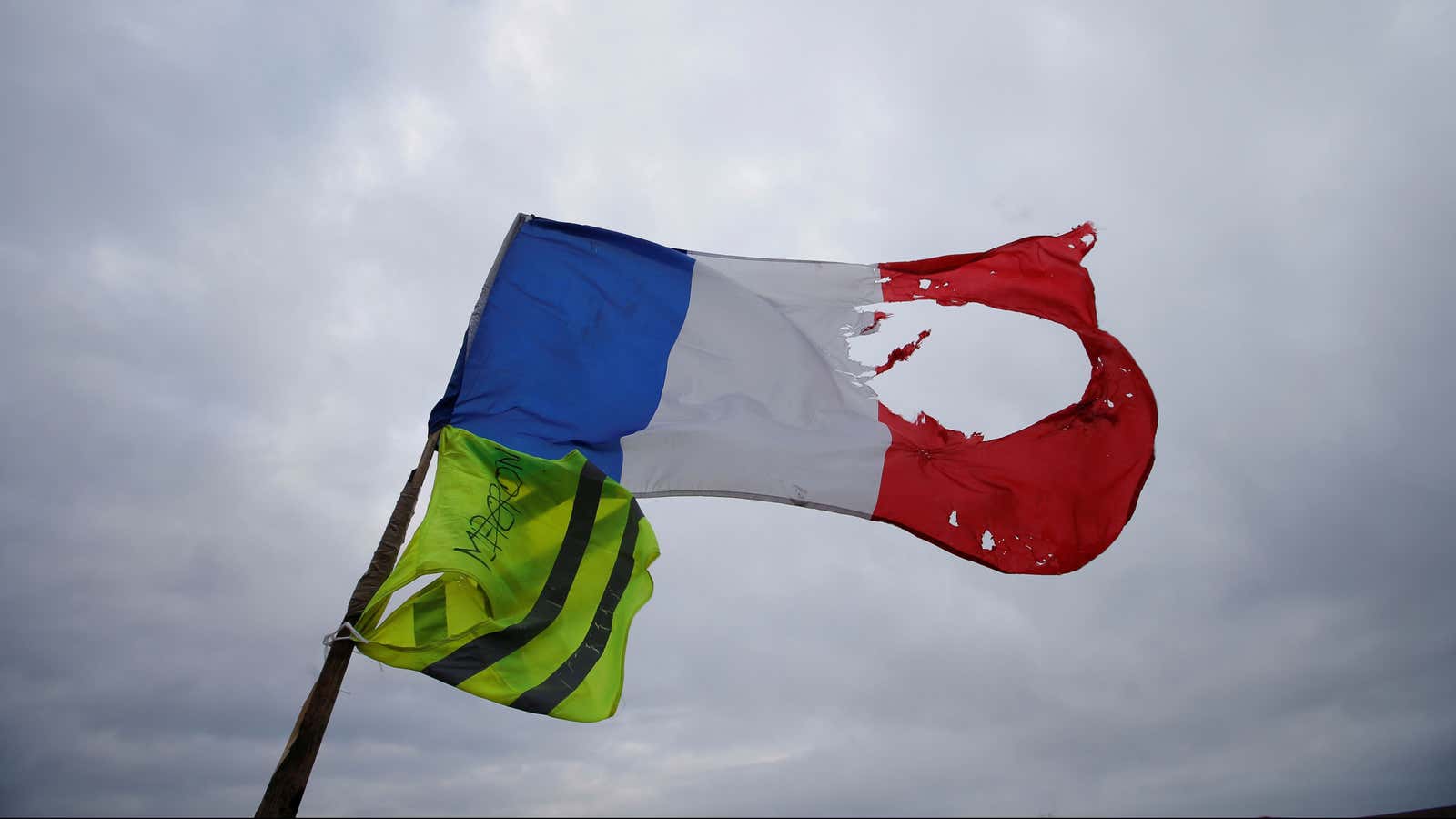The New York Times editorial board recently declared that “Paris is burning.” And to a certain extent, that’s true. For the past three weeks, protesters known as “yellow vests” have staged sometimes-violent riots across France. What began as a movement against a hike in carbon taxes has now turned into a general expression of working- and middle-class discontent against globalization and government. Some protesters have burned cars, looted stores, assaulted journalists, and defaced public monuments, leading to millions of euros in damage, countless arrests, and three deaths.
And it doesn’t seem likely to stop anytime soon. After refusing to give in to the protesters’ demands for weeks, the government of president Emmanuel Macron recently announced it would eliminate the carbon tax. But the yellow vests are still angry, and some within their movement say they are planning further protests—including a call to march into the presidential palace (link in French) over the weekend.
In an effort to end—or at least, redirect—the violence, a leading green activist, Cyril Dion, penned an editorial (link in French) in left-leaning daily Libération calling on the yellow vests to abandon their plans for further protests and instead join the global march for climate justice on Dec. 8, to raise awareness of climate change.
In his editorial, Dion writes that the struggle for economic and social equality cannot be disconnected from the fight for environmental justice: “Let us show that we French people are capable of rising en masse for things greater than ourselves,” he implored. “The revolutionaries of 1789 rose up against the price of bread, the famine, and inequalities. But they did not stop there. They created the rights of man and citizen. You rose up because of fuel and against taxes. Together, let’s create a society where the survival of all is more important than the profits of a few.”
The symbolic gesture of an activist asking a movement dedicated to eliminating the carbon tax to join a march to save the environment is a bittersweet one. An October United Nations climate report recommended the use of carbon pricing measures like carbon tax or cap-and-trade programs to slow the steady rise of global temperatures. And Nobel-Prize-winner William D. Nordhaus has argued (paywall) that a global carbon tax is “the most efficient remedy for the problems caused by greenhouse-gas emissions.” It’s also true, however, that carbon taxes disproportionately impact the working class.
It remains to be seen whether Dion’s plea to the yellow vests will resonate in the streets of Paris. The question is whether environmental activists like him can convincingly make the case that socio-economic equity and green policies can go hand-in-hand. The yellow vests certainly don’t seem to think so.
